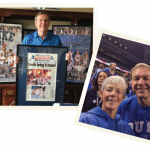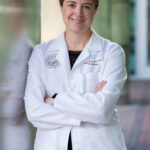The Clinical Research Conference, which is now a permanent fixture of the ACR annual meeting, has goals similar to the Basic Research Conference. The 2007 conference will focus on drug safety, and is chaired by Daniel H. Solomon, MD, MPH, assistant professor of Medicine in the division of rheumatology, immunology, and allergy at Brigham & Womens Hospital in Boston.“The chair, who is an expert in the field, organizes the program, and selects the speakers,” explains Dr. St. Clair.
Additional Goals
In addition to implementing the research agenda and providing two pre-meetings on research each year, COR continues to focus on several ongoing goals. One is to preserve and grow the rheumatology research infrastructure. “We’ve moved forward on that initiative with the white paper,” says Dr. St. Clair.
The committee also focuses on providing leadership and guidance for new researchers through its young investigators subcommittee. The subcommittee was formed two years ago and has eight ACR members who are not members of COR. “We were charged with helping the young investigator constituency,” says young investigator representative Christy C. Park, MD, assistant professor of rheumatology at Northwestern University Feinberg School of Medicine in Chicago. “We started from scratch; we thought we should gauge the interest in a career in research among younger members, starting with fellows.” The subcommittee has conducted two surveys of rheumatology fellows and is analyzing the results thoroughly. “We asked what factors made them choose academic research,” explains Dr. Park, “and we asked a lot of open-ended questions, too. A one-to-five rating doesn’t really give all the answers.”
Dr. St. Clair explains, “We’re studying career outcomes of physician investigators, identifying young investigators in the ACR, and examining what factors lead to their success as academic investigators. The answers will help us develop strategies to help them succeed.”
The subcommittee also presented a special session for fellows on academic research for the second time at the scientific meeting in November. “This was very well attended last year,” says Dr. Park. “We hope that this brings some visibility to our group, so that [the fellows] can voice their concerns to us.”
Another initiative of the young investigators is recognizing mentorship. “We recommended to the REF a new award recognizing mentorship,” says Dr. Park. “We want to highlight the importance of mentoring with the Investigative Mentorship Award [given for the first time in November 2006].”
Impact of the Committee
The work that the entire COR does has a direct influence on rheumatology research and, by extension, on ACR members and other practicing rheumatologists. “By its nature, the main impact of the committee is on the research community, although ultimately, research activities [affect practicing rheumatologists] by helping develop novel therapeutics,” says former committee member Gary Firestein, MD, professor of medicine and chief of rheumatology at the University of California, San Diego. “The committee helps to identify new areas of research, new collaborations with other organizations, unmet medical needs where our organization can begin to focus attention, and funding opportunities in an area where research funding is badly needed.”


